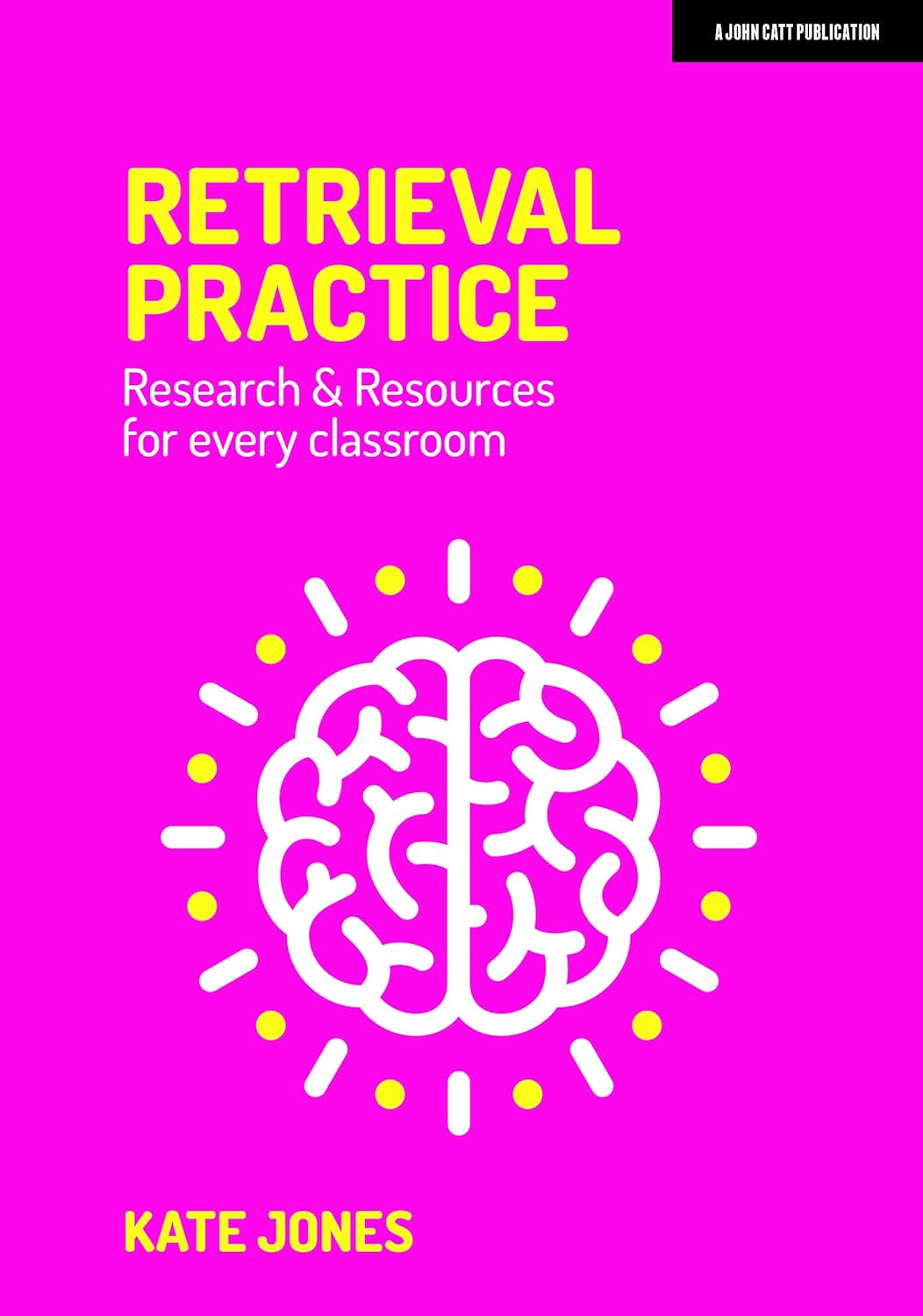
Retrieval Practice: Research & Resources for every classroom: Resources and research for every classroom
FREE Shipping
Retrieval Practice: Research & Resources for every classroom: Resources and research for every classroom
- Brand: Unbranded

Description
But what if you did put in that effort, and it worked out? What if you persevered through that short-term pain and feeling of frustration? Imagine you really committed yourself to retrieval practice, and were duly rewarded in a test. You can probably understand this article very easily, but if you sat a test on it next week would you remember all, or even most, of its details? Probably not.
It may seem counterintuitive, but that effortful struggle is exactly what produces the strengthened retrieval in future. I designed the retrieval practice challenge grid to help you purposefully revisit subject knowledge and content previously studied. Psychologists (and teachers!) have known for a long time that a little bit of stress is a good thing in terms of student performance. However, too much stress can be debilitating and hinders performance. The researchers found that the power of retrieval practice to prepare students for tests held even when they took the tests under extremely stressful conditions. A few minutes later, I’ll switch to the next slide which has all of the correct answers on, and pupils can self-mark, correcting anything they got wrong.It doesn’t really matter whether the children get the question right or wrong; they benefit either way from this effective learning technique. Our job is to interrupt this forgetting, by using effective strategies to prompt children to retrieve information from memory. Embed multiple-choice quizzes into your classroom practice Design five to eight questions that help students practise retrieving their knowledge on the topic from memory and applying it to answer the question.
Kate Jone’s book is very evidence-based. So much so that it might be the most comprehensive overview of the research in this area that we have come across. Kate also provides a reference list of academic journals and complementary books on the area at the end of each chapter. This means that, in addition to everything you can learn from the book itself, you know exactly where to look for further reading. Usability It is for this reason that, as part of our curriculum design at Reach Academy Feltham, we have embedded regular multiple-choice tests and quizzes into our curriculum design to help us reap the benefits of retrieval practice. Explain that the students will be given time to look at the first slide and store the information in their minds, without writing anything down.
What is retrieval practice?
By the end of the week, the retrieval strength of your hotel room number will have increased, by regularly having to recall it. However, the storage strength is likely to remain low; you probably won’t be able to recall it in a year or two.
Look at your scheme of learning for a half term. Decide what the key takeaway concepts or vocabulary are in that time.
How to use the grids
So, while quizzing may not be the flashiest or most fashionable classroom activity, there is an abundance of science outlining the learning rewards. Mistakes to avoid And psychologists point to competence as an incredibly powerful driver of long term motivation. As we get better at things, we start to enjoy them more. One of our favourite features of this book is that it is well designed, making it easier to read. Several illustrations summarise the key points – a very clever nod to Dual Coding, discussed in the book as well. Usefulness
When I first began using test-enhanced learning I made a few mistakes that reduced the effectiveness of retrieval practice. Retrieval Grids include spacing: Students are challenged to retrieve the concept or answer to a question. Each box is color coded for the time when students first learned or encoded the concept: concepts from the last lesson are in blue, last week in red, two weeks ago in green, etc. Space it out! These quizzes are no stakes. That is to say, we don’t collect in any scores, and we don’t tell children off or express disappointment if they get a question wrong. That is not the purpose.These results have since been repeated in multiple contexts and under a huge variety of conditions. These changes are possible because of how well-researched retrieval practice is. Cognitive scientists have spent decades investigating its use as a memory technique. Though nothing in science is ever beyond question, the positive results across a vast number of studies certainly seem to suggest it’s an effective method. New discoveries In this episode of The Cult of Pedagogy podcast, Jennifer Gonzalez speaks to Pooja Agarwal about what retrieval practice is and how you can start incorporating it into your classroom right away. The problem with adding in these silly options is that they distract children from what you actually want them to remember (that “there were no more worlds to conquer”).
- Fruugo ID: 258392218-563234582
- EAN: 764486781913
-
Sold by: Fruugo
